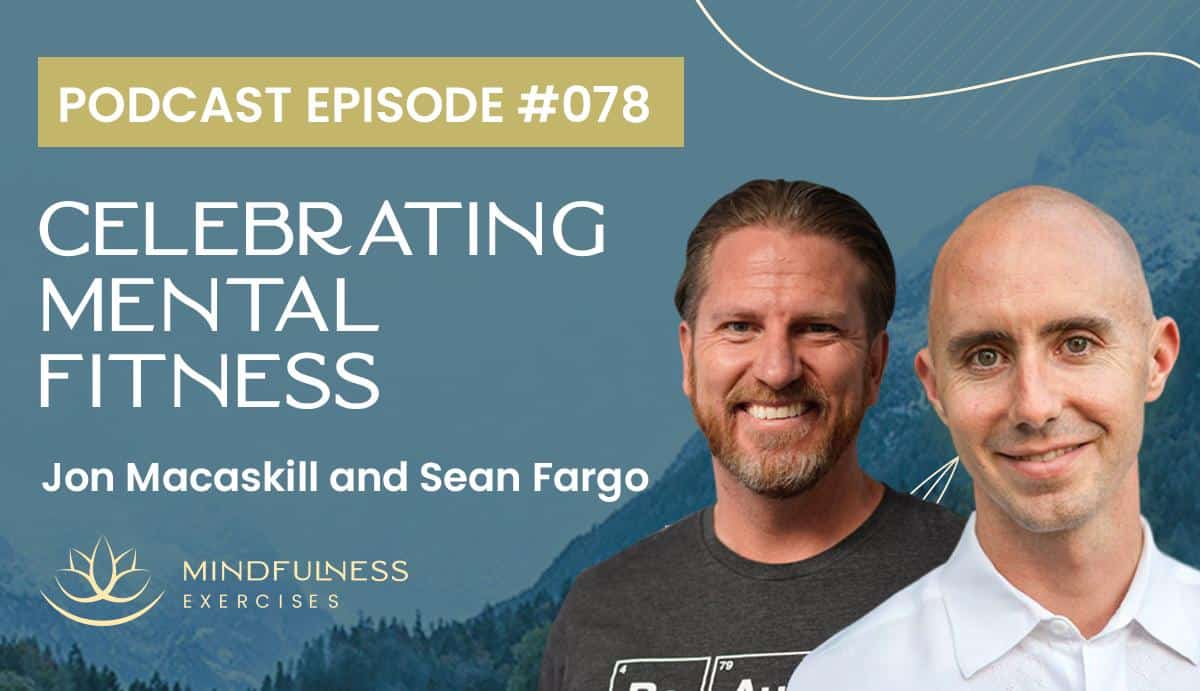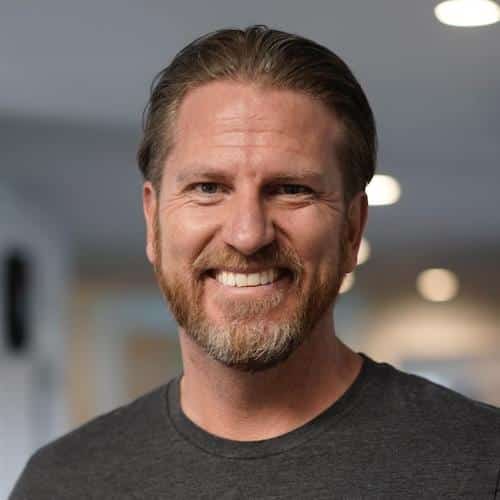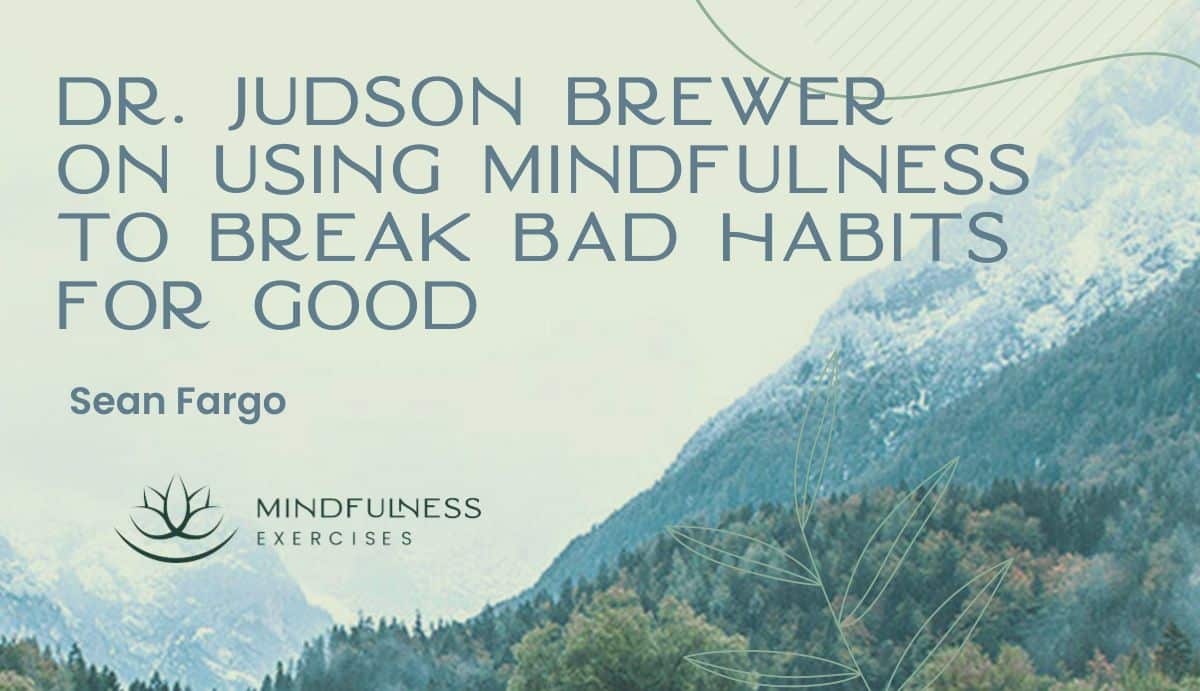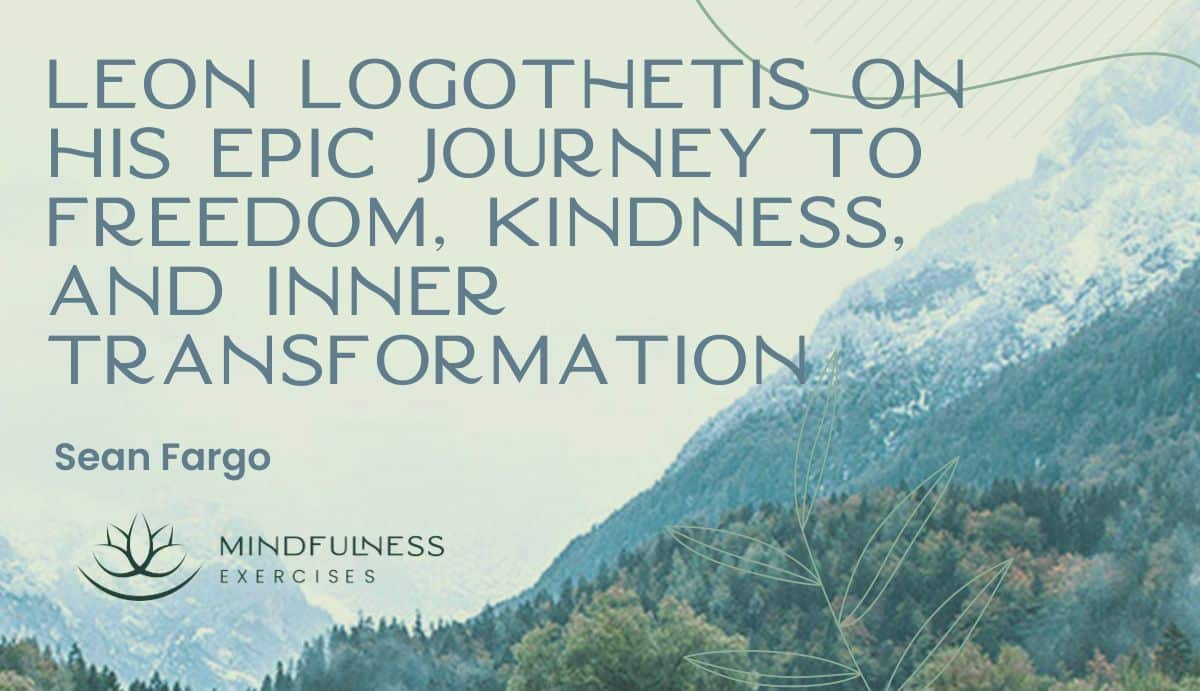Listen now

The value of mindfulness isn’t always recognized in professions where high performance, mental toughness, and physical strength are celebrated. But what if we expanded our view of what it means to be fit, applauding mental fitness the same way we do physical fitness?
Jon Macaskill is a former Navy SEAL turned mindfulness coach, speaker, and podcaster. He is also a graduate of the Mindfulness Exercises Mindfulness Meditation Teacher Training Program. In this episode, he speaks with Sean Fargo about the professional and personal fulfillment he found via mindfulness, and why, after 24 years in the Navy, he is now inspired to share it with others.
What You’ll Learn in This Episode:
Show Notes & Quotes:
How a Navy SEAL found mindfulness
When a counselor first suggested mindfulness and meditation to Jon Mackskill, he laughed, thinking meditation would be no match for what were ‘real, deep problems.’ But his counselor skillfully framed mindfulness in a way that made sense to the Navy SEAL. He presented the practice as a means of improving his performance, something Jon desperately wanted to get back after experiencing anxiety, depression, and survivor’s guilt following battlefield experiences.
“I was very naive about the power of these practices and what they were. There’s a stigma, even more so amongst men, around doing what could be perceived as ‘soft’ practices, and what they are and what they aren’t, and what they do and what they don’t do. So I laughed in this counselor’s face.”
The importance of meeting people where they are
After an unsuccessful attempt at an hour-long seated meditation, Jon reported back to his counselor that mindfulness doesn’t work. This is an all-too-common experience. However, he became willing to try again when the counselor presented him with an approach that was familiar to him. The suggestion was to train in mindfulness the way one would train physical fitness, by building slowly over time, with an exercise he already knew.
“He introduced me to a practice I had done before in the SEAL teams. He reintroduced me to box breathing. We do box breathing in the SEAL teams to control our heart rate, control our anxiety, control our breath, our respiratory rate when we are training so that we can shoot better, so that we can be more aware of the present moment. And so I was like, ‘Oh Doc, I’ve done that before!’ and he was like, ‘Well, do it outside of the shooting range.’ [...] So I started to do that regularly and the effects, they’re immediate but they’re not long-lasting. Well, I continued to do it and then I started getting into more in-depth meditations and I started to see the effects were longer lasting.”
Transitioning from practitioner to teacher
After a few months, Macaskill noticed that in addition to performance improvements, there were other, unexpected yet positive side-effects arising from his daily meditation practice. When others noticed this too, he felt he had an obligation to pay it forward by sharing the practices that had changed and saved his life.
“The anxiety, the stresses and the depressions, they still came. But, I was better able to handle them, process them in a more healthy way. And [...] I saw at that point that it was almost a duty and an obligation to pay it forward and share what I consider to be life-changing, and quite literally even life-saving practices, with anyone who would listen. Which is when I said ‘Hey, I want to be a mindfulness teacher, I want to be certified in this so I can help others.’ And I jumped online and looked and found [Sean Fargo and his program] and we went through that together and since then I’ve been working to change and save lives.”
Celebrating mental fitness as we do physical fitness
In the hyper-masculine community of the Navy SEALs, it’s not common to model vulnerability or to discuss one’s emotions for fear of being labeled as a poor performer. But actually, keeping his hurt and sadness inside impaired Jon’s performance by increasing his anxiety. Once he turned this around, he became committed to being more open about his ongoing approach to mental fitness.
“I started talking openly about my feelings. At one point I had a big calendar that sat behind me at work, and whenever I had a mental health appointment I would write it on that calendar and highlight it in yellow, where everyone that walked past my desk could see it. And I would have people come up to me and say, ‘Hey, Sir, are you ok? [...] I see you have a mental health appointment on your calendar.’ Well, that’s me attaining and maintaining some level of mental fitness, and we need to change the narrative around mental health and make it where it’s mental fitness. ‘Cause that’s what physical fitness is, right? We applaud somebody if they go to the gym, or if they start running, or they start eating well and taking care of their physical fitness.”
Attaining versus maintaining mental fitness
Men are perhaps especially prone to bringing the goal-oriented doing, achieving, and gaining mentality they are familiar with to the practice of meditation. While appealing to performance enhancement is a valuable method of getting someone started, it’s often not what makes people stay. Both Sean and Jon describe a similar experience, as the motivation behind their practice shifted from doing to being.
“Once you get into these practices, you start to see the other profound effects that they have on your mind, on your body, on your heart. And then the outward effects that they have on your relationships with your friends, your family, your colleagues. And the inward side, that is the relationship with yourself. When you start to see that, then you start practicing for another reason altogether. [...] And I think that’s where people become lifetime practitioners. It’s when they start to see how it affects their heart and mind, their spirit, their soul, on a different level.”
Additional Resources:
This podcast is brought to you by the Mindfulness Meditation Teacher Training Program. Learn more about this unique, online, self-paced certification program at mindfulnessexercises.com/certify

About Jon Macaskill:
Jon Macaskill is a retired Navy SEAL Commander turned leadership and mindfulness coach, and a graduate of the Mindfulness Exercises Mindfulness Meditation Teacher Training Certification Program.
During his 24-year Navy career, Jon served in multiple highly dynamic leadership positions from the battlefield to the operations center and the board room. Today, Jon’s consulting company, Frogman Mindfulness, helps people and organizations become the best versions of themselves through mindfulness coaching, keynote speaking, and grit and resilience training.
Jon’s highly-rated podcast, Men Talking Mindfulness, presents raw, uncut, and unapologetic conversations about mindfulness and is dedicated to helping men navigate life's complex challenges through mindfulness practices.






